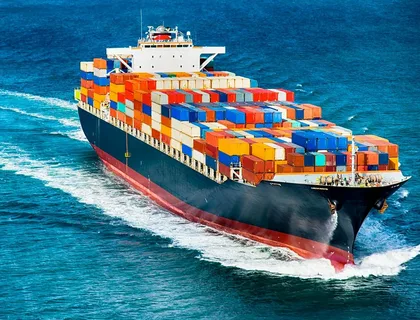In an increasingly interconnected world, the transportation of goods across borders is crucial for business success. While air freight has its advantages, sea cargo remains a cornerstone of global trade, offering an efficient and cost-effective solution for shipping large volumes of goods. Here’s a closer look at sea cargo, its benefits, and why it’s an essential option for businesses.
What is Sea Cargo?
Sea cargo refers to the transport of goods via shipping vessels over oceans and seas. This method encompasses a variety of goods, from raw materials and bulk commodities to manufactured products and containers. With a vast network of shipping routes, sea cargo facilitates international trade on a massive scale.
Benefits of Sea Cargo
- Cost-Effectiveness: One of the most significant advantages of sea cargo is its affordability. Transporting goods by sea is generally cheaper than air freight, especially for large and heavy shipments. This cost efficiency makes it an ideal choice for businesses looking to manage their shipping expenses.
- Capacity: Ships can carry a substantial amount of cargo, including oversized and heavy items that would be difficult or impossible to transport by air. This makes sea cargo an excellent option for bulk shipments and large-scale logistics.
- Global Reach: Sea cargo connects countries and continents, allowing businesses to tap into global markets. With numerous shipping routes and ports, companies can easily reach customers worldwide.
- Environmental Impact: When compared to air freight, sea cargo is more environmentally friendly. Ships generally produce lower emissions per ton of cargo transported, making it a greener option for businesses conscious of their carbon footprint.
- Flexibility: Sea cargo services offer various shipping options, including full container loads (FCL) and less than container loads (LCL), allowing businesses to choose the best solution based on their needs.
Choosing Sea Cargo Services
- Research Shipping Lines: Look for reputable shipping companies with a proven track record in sea cargo. Reading reviews and asking for recommendations can help you make an informed decision.
- Understand Pricing Models: Sea cargo pricing can vary based on factors like weight, volume, and destination. Request quotes from multiple providers to compare costs and services.
- Check Transit Times: While sea cargo is cost-effective, it can take longer than air freight. Be sure to consider delivery timelines when planning your shipments.
- Know Your Regulations: International shipping involves various regulations and customs procedures. Familiarize yourself with the necessary documentation and compliance requirements to ensure smooth transit.
Conclusion
Sea cargo remains a vital component of global logistics, providing businesses with an efficient and cost-effective means of transporting goods. With its ability to handle large volumes and reach international markets, it’s an indispensable option for companies looking to expand their operations. By understanding the benefits and logistics of sea cargo, businesses can make informed shipping decisions that support their growth and success.



